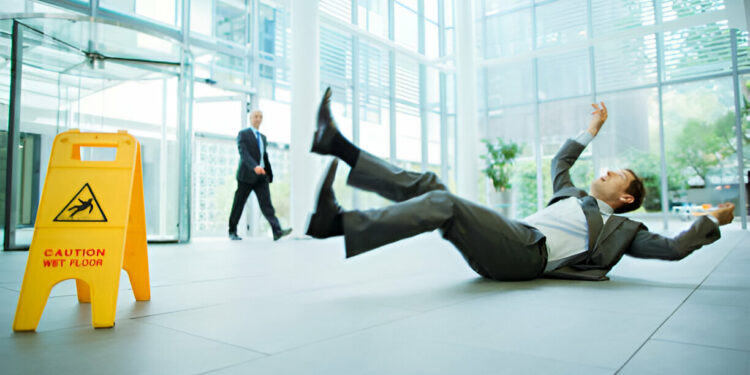Did you know older adults report around 36 million falls annually and that those incidents result in north of 32,000 deaths?
According to the Centers for Disease Control and Prevention, one of every five falls — 20% — causes issues like head injuries and broken bones.
A slip, trip, or fall can alter the trajectory of your life should you be the one to lose your balance. In a best-case scenario, the only injury you’ll incur is to your pride. But the statistics show that many people — and it’s not just the elderly — suffer severe injuries due to trips, trips, and falls.
While anyone can lose their footing and land on the ground, the risks to older folks are greater. They’re more likely than people in younger demographics to fall and suffer injuries requiring hospitalization. If you’re injured after falling, you should seek medical attention. A doctor can conduct X-rays and perform exams to determine the extent of any injuries.
Depending on what the doctor tells you after looking into the matter, you may want to explore legal avenues. That’s where a personal injury lawyer can help.
You may have grounds to pursue legal action to get compensation for medical treatments and ongoing needs stemming from the fall.
Continue reading to learn about five things you must know about slip and fall accidents.
1. Severity of Accident Factors into Amount of Compensation
When filing a personal injury case, your lawyer will ensure you have realistic expectations about the potential outcomes. Any compensation you obtain through a personal injury lawsuit will be based on the severity of the injuries from a slip and fall incident.
An injury that requires surgery and rehabilitation or impacts your daily life over the long term will warrant more compensation than an injury you recover from fairly quickly.
Your lawyer will look at your medical records, recommend you see specialists for an expert diagnosis, and use the information to determine how much compensation to request.
2. Medical Documentation Is Essential
Backing up your personal injury case means gathering medical documentation. That’s one reason to visit your doctor after getting into an accident — even if you initially feel okay.
While you may not feel banged up after an accident, sometimes the symptoms of something more severe don’t occur immediately. By going to a doctor and following their advice, you’ll have evidence to back up your claims in a personal injury case.
Read Also: How to Keep Your Health and Beauty Strong all Year Long?
3. Collect Relevant Evidence
When building a personal injury case, you must gather evidence to support any claims you make in your lawsuit. After an accident, you might not be in an evidence-collecting frame of mind. But taking pictures of the accident scene, getting names and contact details of potential witnesses, and requesting the police report will help your lawyer build a strong case.
4. Get Expert Witnesses
Depending on the facts surrounding your case, retaining expert witnesses can make or break your case. If you’re injured on the job, an expert witness can quantify the extent of the injuries to demonstrate why ongoing treatment may be necessary. You can count on your personal injury lawyer to find the right expert witness if the insurance company refutes the seriousness of your injuries.
5. Remember Deadlines to Avoid Disappointment
A good personal injury lawyer will ensure there’s no unnecessary delay in filing your personal injury case. Being mindful of the statute of limitations is vital. The last thing you want is to miss deadlines and jeopardize your personal injury lawsuit.
These are some things to know about trip and fall accidents. Being on the receiving end of this mishap can slow you down longer than you’d like. But getting the help you need will ensure you get on your feet sooner so you can move on with your life.












